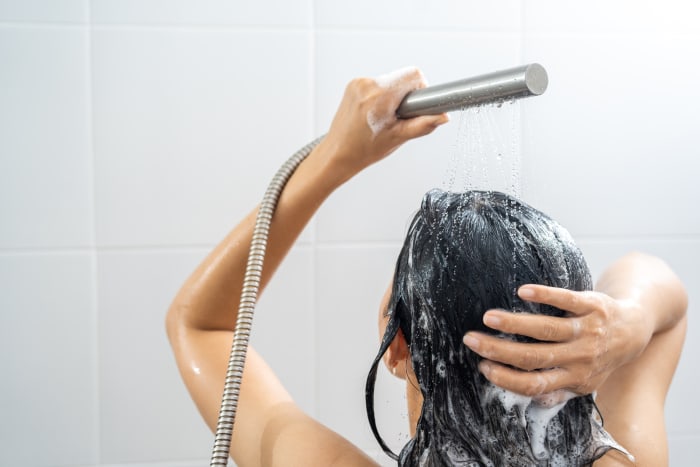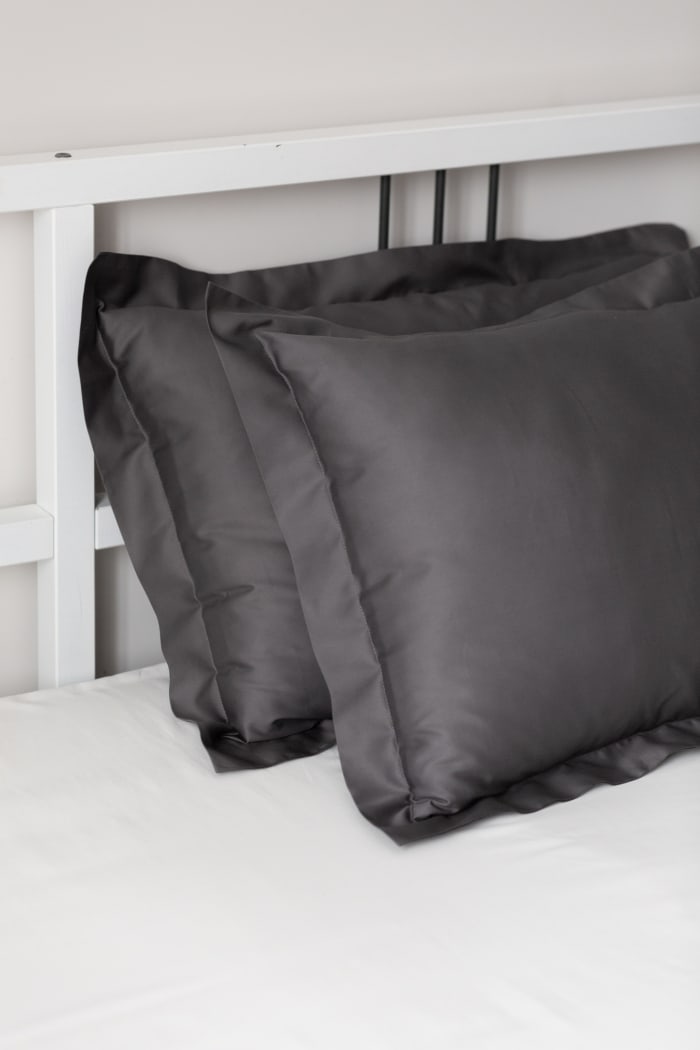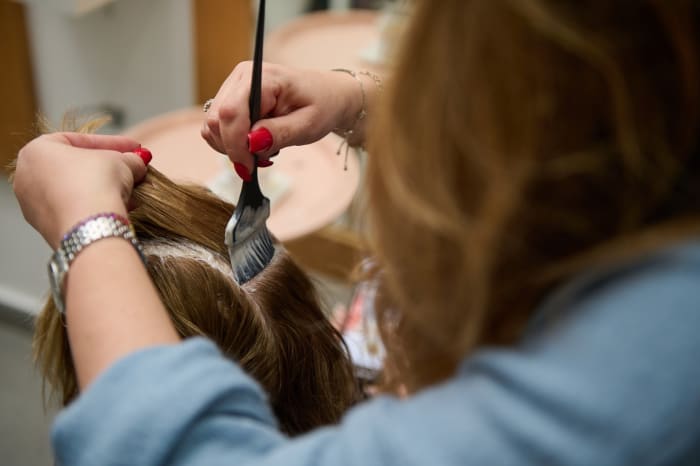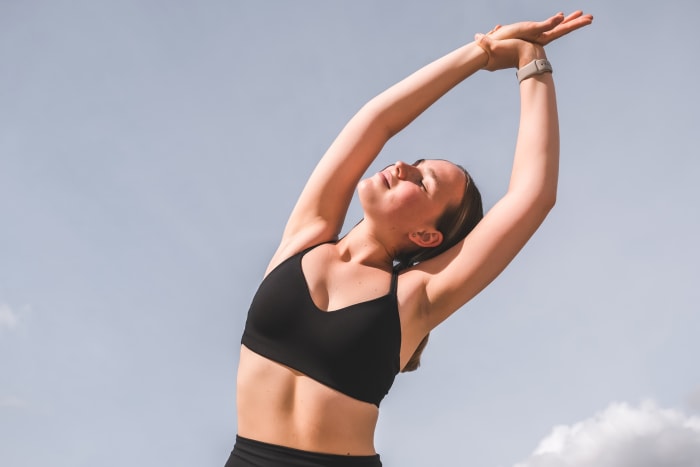Hair health is a journey. These 20 tips can help you move along on it.
1 of 20
Figure out a good washing schedule
Washing hair
Shutterstock
Everyone’s washing schedule is going to look a little different based on the type of hair, but one of the cornerstones of hair health is developing a good schedule. Figure out what works best for your hair, keeping in mind that the finer your hair, the more frequently you’ll likely have to wash.
2 of 20
Keep your scalp clean
Unclean scalp
Shutterstock
Your scalp is where your hair's health stems from. Keep your scalp clean by really scrubbing it down during those washes, making sure to get out all product and debris that’s built up since your last wash.
3 of 20
Only cleanse your scalp
Washing hair
Shutterstock
Don’t use shampoo on the shaft of your hair. Unless there’s something unusual in your hair that needs to be washed out, focus on cleansing your scalp and letting the shampoo rinse through the rest.
4 of 20
Brush your hair before washing
Brushing hair
Shutterstock
You might be able to go days without brushing your hair, but make sure to do so before you get it wet. Washing your hair without tangles will allow your shampoo and condition to do their job better, and it’ll prevent new tangles from forming in the shower.
Brushing hair
Shutterstock
Make sure that you’re brushing your hair with proper form, too. Start at the ends and work your way up once you’re sure you don’t have a tangle. Brushing improperly can cause damage or create a major tangle that’s a hassle to remove.
Washing hair
Shutterstock
Not everyone wants to use conditioner because it’s an extra expense, and it never runs out at the same time as shampoo. But it’s an important step that keeps your hair silky and shiny and protects it from split ends.
Drinking water
Shutterstock
Hair health isn’t just determined by how you treat your hair - it’s determined by how you treat your body. Keep your body hydrated so your locks stay luscious. If you’re not healthy, your hair will suffer, too.
Eating
Shutterstock
Protein is also important for hair health. No matter how you get protein — whether it be by meat, eggs, soy, or another source — make sure you’re getting enough of it. If you aren’t getting enough protein, your hair can become lackluster and brittle.
Making a smoothie
Shutterstock
A diet that includes the proper amount of zinc will also aid in hair health. Luckily, many foods are high in protein and also high in zinc, so you’re probably double dipping. But if you need more, add more fruits and veggies to your diet.
10 of 20
Protect your hair from heat
Shutterstock
Heat aims to destroy your hair. Seriously. Use heat protectants when styling with heat, and let your hair air dry as much as possible to lessen the need for a blow dryer. Also, keep your hair protected from the sun.
11 of 20
Select products according to your hair type
Applying oil
Shutterstock
It’s extremely important to know your hair type to keep it healthy. Not only will it determine how often you wash your hair, it’ll also guide you in selecting products. Choosing products meant for your hair type will help it stay healthy.
12 of 20
Sleep on silk or satin
Silk pillowcase
Shutterstock
A silk or satin pillowcase will do wonders for your hair to prevent breakage (the material is also good for your skin). If you prefer, you can also put your hair in a silk or satin bonnet or wrap before sleeping.
13 of 20
Don’t rub your hair when wet
Brushing hair
Shutterstock
It can be tempting to rub your hair after a shower to get some of the water out, but that will cause damage to your locks and give you extra frizz. Instead, gently ring it out with your hands or with a towel to release the excess moisture.
Applying hair product
Shutterstock
Hair masks are by no means the essence of hair health. If you’re new to a hair health journey, focus on establishing a basic routing and cleansing your scalp. But if you want to add a little something extra to the mix, use a hair mask for some additional shine.
Swim cap
Shutterstock
Clean water is good for your hair, but a chlorinated pool and some natural bodies of water will wreak havoc on your tresses. Save yourself the damage by wearing a swim cap, or keep your head out of the water altogether.
16 of 20
Stretch your time in between dyes
Hair dye
Shutterstock
Few things are as harsh on hair as chemicals. While we all want to look our best, stretch your time between dyes as much as possible to avoid unnecessary damage. And make sure to keep your hair as healthy as possible in between.
17 of 20
Get your hair cut regularly
Haircut
Shutterstock
Haircuts shouldn’t be reserved for when you want to reinvent yourself, or you’re going through a breakup. They’re an important part of hair health. Even if you don’t want to take a lot of length off, at least go in for a trim to remove split ends and other damage.
18 of 20
Cut back on alcohol
Saying no to alcohol
Shutterstock
Limiting your alcohol consumption is healthy for many reasons, one of which is that it improves the state of your hair. Drinking too much can cause significant hair loss. It can also lead to dehydration, which we established is bad for your hair, too.
19 of 20
Cut back on stress
Stressed woman
Shutterstock
It's easier said than done, but try to reduce stress if your hair isn’t doing well. Stress can cause hair loss, too, and it can do other damage to your locks. Find ways to reduce stress so your hair can grow healthily.
20 of 20
Exercise regularly
Woman exercising
Shutterstock
Like drinking water and eating well, exercise has a bounty of benefits. Exercise can improve circulation and reduce stress, both of which lead to healthy hair. The next time you’re tempted to skip your cardio barre class, think of your hair.
Acacia Deadrick is a South Dakota-based writer who has written for sites such as Nicki Swift, The List, and Glam. She loves music and all things pop culture, and she can be found watching TV, completing a crossword puzzle, or reading in her spare time.
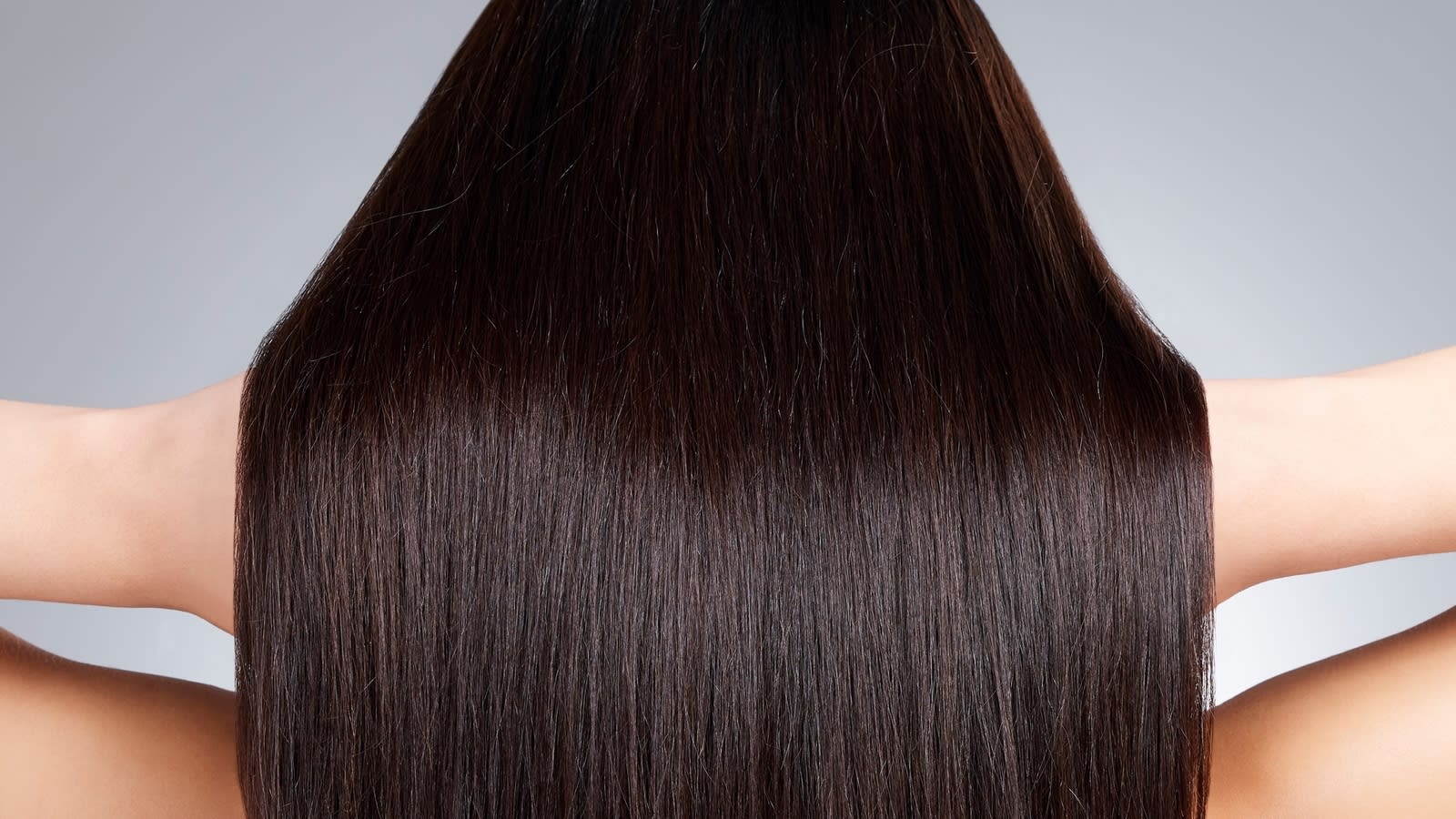
 +
+
